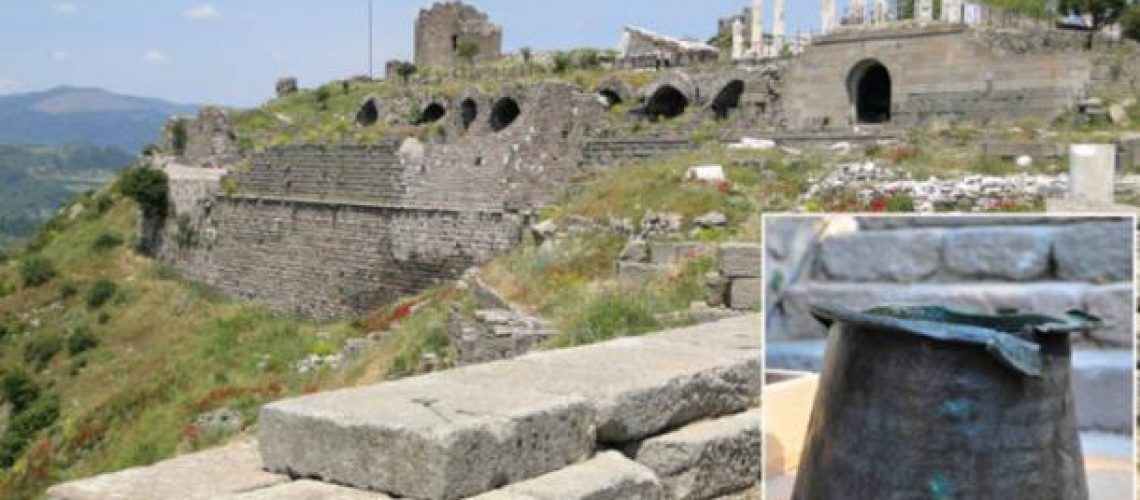
An exceptionally well-preserved bronze cauldron dating back 1,400 years has been unearthed during archaeological excavations at the ancient city of Pergamon in western Turkey’s Bergama district. The remarkable discovery was made within the stone courtyard pool of a building complex known as the “Mosaic House,” situated near the famous Red Basilica (Kızıl Avlu). Found in its original, undisturbed position, this Byzantine-era artifact offers unique insights into daily life, water usage, and bronze craftsmanship during the 7th century AD, when the site was abandoned following regional upheavals.
- New Digital Map Gives Fresh Details About The Ancient City of Pergamon
- 1700-Year-Old Trident Found in Assos Reveals A Maritime Heritage

The cauldron recently excavated at Pergamon. (DHA)
The discovery was made as part of excavations conducted under the Turkish Ministry of Culture and Tourism’s “Heritage for the Future” initiative, within the Pergamon Multi-Layered Cultural Landscape – a UNESCO World Heritage Site. The excavation is led by Prof. Dr. Yusuf Sezgin, head of the Archaeology Department at Manisa Celal Bayar University, whose team has been systematically uncovering the architectural and cultural treasures of this ancient metropolis, explains an Anatolian Archaeology report.


